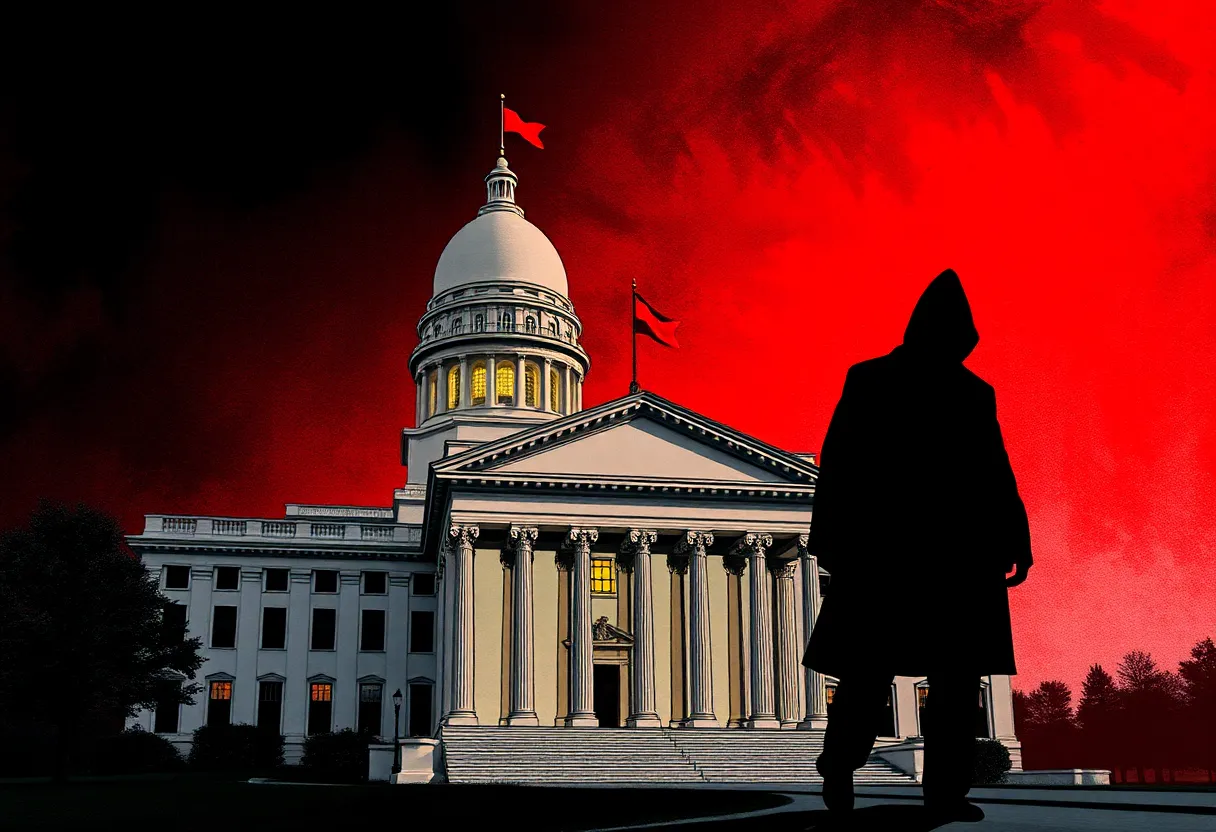News Summary
In a notable move, the House Oversight Subcommittee has voted to subpoena the Department of Justice for files related to Jeffrey Epstein, demonstrating unexpected bipartisan support. The vote, which concluded with an 8-2 outcome, saw three Republican members join Democrats in favor. This subpoena seeks to uncover communications involving Epstein, including inputs from former Biden officials and depositions from prominent public figures. The implications of this investigation are significant, stirring debates within political parties and raising questions about transparency.
House Oversight Subcommittee Takes a Bold Step in Epstein Files Investigation
In a surprising turn of events on Capitol Hill, an **Oversight Subcommittee** in the House voted 8 to 2 to subpoena the Department of Justice for files tied to notorious financier Jeffrey Epstein. This vote was intriguing for its *bipartisan support*, with three Republican members joining forces with Democrats in favor of the subpoena—a colorful twist in what has often seemed like a sharply divided political landscape.
A Breakdown of the Vote
The vote has garnered attention, particularly because it showcases a rare moment of cross-party collaboration. Voting against the subpoena were Republicans Clay Higgins of Louisiana and Andy Biggs of Arizona. Higgins argued that the motion was **overly broad**, stressing the necessity for the Justice Department to maintain the integrity of its case files—a sentiment many lawmakers echoed amid the discussions.
What’s Included in the Subpoena?
If the subpoena receives the stamp of approval from the subcommittee’s chair, James Comer, the Justice Department would be required to release relevant Epstein files, with the names of victims protected through redaction. Notably, the subpoena doesn’t stop there; it also seeks to uncover communications between former Biden officials and the Department of Justice concerning Epstein. To enrich the investigation further, it demands depositions from well-known public figures like Bill and Hillary Clinton as well as former FBI Director James Comey.
The Bigger Picture
The implications of this subpoena are significant. Critics have raised concerns that it may compel the Justice Department to provide documents broader than what was originally reviewed by a grand jury. A notable mention in the background is Todd Blanche, Donald Trump’s Deputy Attorney General, who is scheduled to meet with Ghislaine Maxwell—Epstein’s associate serving time for sex trafficking. The layers of this case keep adding depth with these ongoing discussions.
Political Dynamics and Resistance
Interestingly, House Speaker Mike Johnson has been actively pushing back on the movement for greater transparency around the Epstein files, suggesting that not all Republicans are on board with this investigation. When looking over to the Senate, there’s also a marked lack of interest among key Republican committee chairs, indicating a limited appetite for a deep probe into Epstein. Senators Rand Paul and Ron Johnson have explicitly stated they won’t pursue further investigations, which creates a curious contrast with the House’s current initiatives.
Why It Matters
Rep. Summer Lee, who put forth the motion, has highlighted the importance of accountability, emphasizing that **transparency regarding the Epstein case** matters to the public. The potential outcomes of this investigation could lead to a broader understanding of not only Epstein’s misdeeds but also the intricate connections and punctuated power dynamics at play.
FAQs
What was the recent vote by the House Oversight Subcommittee about?
The subcommittee voted 8-2 to subpoena the Department of Justice for files related to Jeffrey Epstein, with a surprising bipartisan support from three Republicans joining Democrats in favor.
What does the subpoena aim to uncover?
The subpoena requests Epstein files with victim names redacted, communications between Biden officials and the Justice Department, as well as depositions from notable public figures, such as Bill and Hillary Clinton and James Comey.
Who opposed the subpoena motion?
Rep. Clay Higgins from Louisiana and Rep. Andy Biggs from Arizona voted against the subpoena, with Higgins highlighting concerns about the breadth of the request and the integrity of case files.
Is there appetite for further investigation in the Senate?
Key Republican committee chairs in the Senate have expressed a lack of interest in pursuing additional investigations into the Epstein matter, with Senators Rand Paul and Ron Johnson explicitly stating they won’t take up the issue.
Key Features of the House Oversight Subcommittee Subpoena
- Vote Outcome: 8-2 in favor of the subpoena
- Bipartisan Support: Three Republicans joined Democrats
- Opposition: Two Republicans voted against it
- Key Requests: Epstein files, communications with Biden officials, depositions from public figures
- Political Tension: House Speaker pushing against transparency
- Senate’s Stance: Minimal interest in investigating Epstein
Deeper Dive: News & Info About This Topic
- WAAYTV: Clay Higgins Vows to Work in a Bipartisan Manner on Epstein Files
- CNN: House Epstein Files Subpoena
- Axios: Jeffrey Epstein Subpoena and Bipartisan Politics
- Boston Globe: Trump Presidency Live Updates
- WAOW: House Oversight Subcommittee Votes to Subpoena DOJ for Epstein Files
- Wikipedia: Jeffrey Epstein
- Google Search: Epstein Files Subpoena
- Google Scholar: Epstein Files
- Encyclopedia Britannica: Jeffrey Epstein
- Google News: Epstein Subpoena

Author: STAFF HERE AUGUSTA WRITER
The AUGUSTA STAFF WRITER represents the experienced team at HEREAugusta.com, your go-to source for actionable local news and information in Augusta, Richmond County, and beyond. Specializing in "news you can use," we cover essential topics like product reviews for personal and business needs, local business directories, politics, real estate trends, neighborhood insights, and state news affecting the area—with deep expertise drawn from years of dedicated reporting and strong community input, including local press releases and business updates. We deliver top reporting on high-value events such as Arts in the Heart Festival, Westobou Festival, and Masters Week. Our coverage extends to key organizations like the Augusta Metro Chamber of Commerce and Greater Augusta Arts Council, plus leading businesses in manufacturing and healthcare that power the local economy such as Textron Specialized Vehicles, Cardinal Health, and Nutrien. As part of the broader HERE network, including HEREAtlanta.com and HERESavannah.com, we provide comprehensive, credible insights into Georgia's dynamic landscape.


